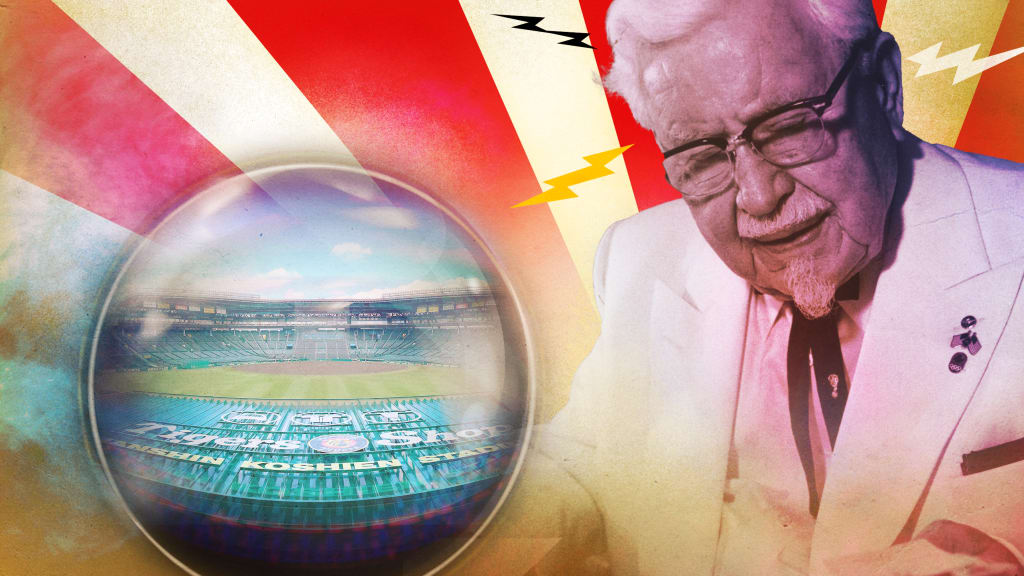
Baseball history is full of curses.
There’s the Curse of Bambino. The Red Sox sold the legendary Babe Ruth to the Yankees in 1920 and didn’t win another title until 2004.
There was the Curse of the Billy Goat. During the 1945 Series, Billy Goat Tavern owner William Sianis and his pet goat were asked to leave Wrigley Field because they were being bothersome to spectators. Sianis said the Cubs would never win again, and they didn’t, until 2016.
But maybe the weirdest, most outlandish curse in all of baseball is one you may have never heard of, but wish you had: The Hanshin Tigers’ Colonel Sanders curse. Yes, the team that plays in Nippon Professional Baseball's Central League was cursed by a fast food chain.
"It's a part of the local culture if you will, the sub-culture of Tigers fans," Hanshin Tigers writer Trevor Raichura told me over Zoom. "Any Tigers fan that sees the statue knows what it represents."
The curse was finally broken Sunday as the Tigers prevailed over the Orix Buffaloes to win the Japan Series. But to understand what this victory truly means, you have to understand how this all began nearly 40 years ago.
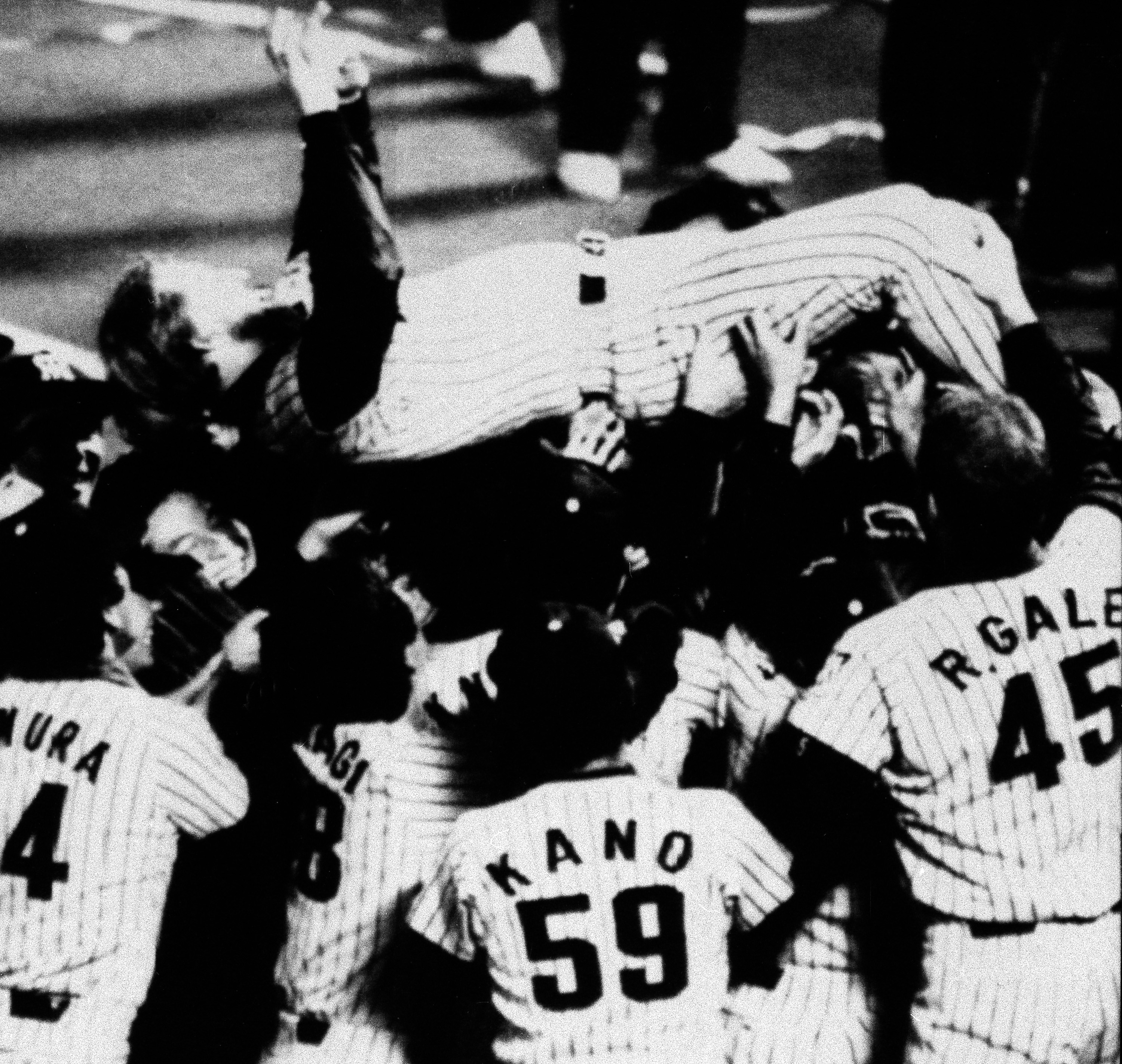
Funny enough, the curse got its origins during a jubilant time in Tigers history.
The team, mostly an underdog franchise throughout its existence, shocked the Japanese baseball world by winning the Central League pennant in 1985. Hundreds of fans frolicked through the streets of Osaka, singing and chanting deep into the night. Eventually the crowd gathered around Dōtombori Canal -- a sludgy, extremely polluted river in the city. A bit high off the victory (and a bit inebriated), the fans looked at each other, looked at the water, and knew what they had to do next.
"The river has that history," Raichura told me. "There's some famous author, or Manga writer, or someone like that, who said in the 80's: 'If the Tigers win the pennant, I'll jump in the river.'"
So, one by one, fans jumped into the canal. Each pretended they were a member of their first-place team so others could serenade them with the player's song during their dives. But when they got to Randy Bass -- the America-born player who hit 54 homers that season for the Tigers -- the revelers realized nobody in their group looked like him. But there was something nearby that did: A giant statue of Colonel Sanders outside the local Kentucky Fried Chicken.
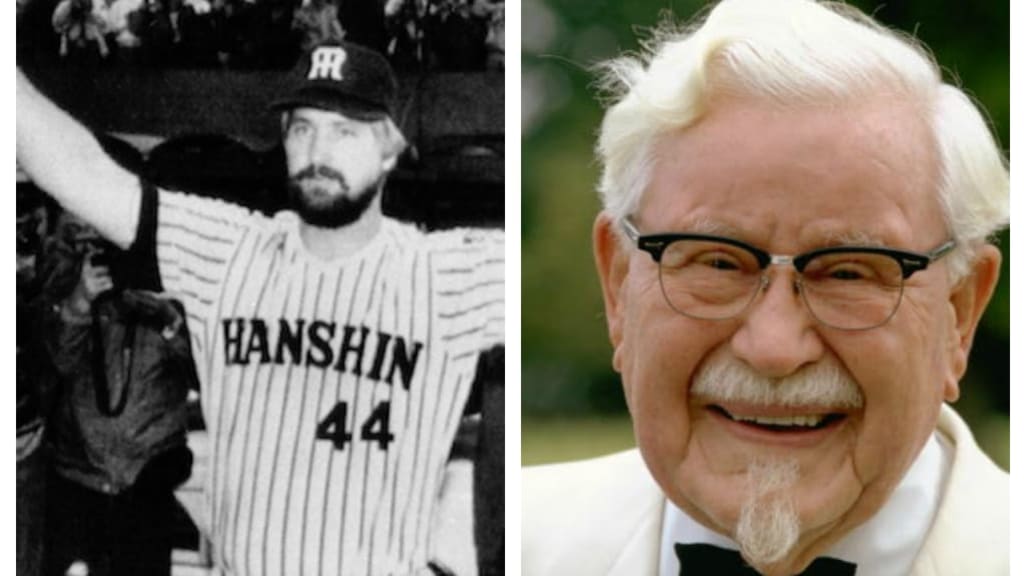
They pulled the statue from the store and tossed it in the river, celebrating as it sank deep into the murky waters.
The Tigers went on to win the Japan Series a few weeks later. There was no talk of any curse yet, and why would there be? The team had just won the whole thing.
But then, after the '85 championship, things began to go awry. On his blog, Raichura lists numerous things that went wrong:
- Star slugger Masayuki Kakefu got beaned by a pitch in 1986, kept getting injured and retired prematurely in 1988
- An ace pitcher went down with a heel injury in May 1986
- The team lost out on 12 consecutive first-round draft pick lotteries that included legends like Hideo Nomo and Hideki Matsui
- Bass was dismissed in the middle of the '88 season when he failed to return to Japan after a visit to America
And the Tigers, also, just got really bad. They had their worst winning percentage of all time in 1987 -- just two years after winning the championship -- putting up a .331 clip.
"In Japanese, they'll say Dame Tora," Raichura told me. "Dame means 'bad' or 'wrong' or "not good." And Tora is the Japanese word for Tiger. So like you'd hear the words 'Dame Tora' more than you'd hear about a curse."
The idea of a curse didn't actually really gain traction until 1988. A popular mystery-solving show called Knight Scoop was commissioned to pull up the fallen Colonel from the Dōtombori Canal. They tried multiple times, but couldn't get it done. When they had finally given up, the hosts declared something that stuck in the minds of Tigers fans : "Until the Colonel is rescued and cleansed of its sludge, Hanshin has no hopes of winning a championship."
For the next 18 seasons, the Tigers didn't win a pennant -- finishing at the bottom of their league almost every year. Attempts to retrieve the Colonel and reverse the curse failed. The Colonel began appearing in the river or outside the river in Japanese TV shows, video games and other pop culture arenas -- haunting Tigers fans anywhere they looked.
But then, in 2003, the team finished first again.
Once again, there was mayhem in the Osaka streets. More than 5,000 fans jumped into the Dōtombori, thinking their team might win the Series and put the curse to bed. Tragically, during the celebrations, a man lost his life. Police constructed barriers to prevent fans from jumping into the river in case the team won the Series. The Tigers didn't win, losing the title to Fukuoka, 4 games to 3.
Finally, in 2009, the Colonel statue was found and pulled up during a routine cleaning of the canal. He looked a little grey and was missing a hand and his glasses, but his smile was still here -- albeit a bit creepy.
Tigers fans had newfound hope.
"It's incredible," Bass told NPR at the time. "Put all of your money on the Tigers, that's for sure. They definitely have a shot. They have a great team, too."
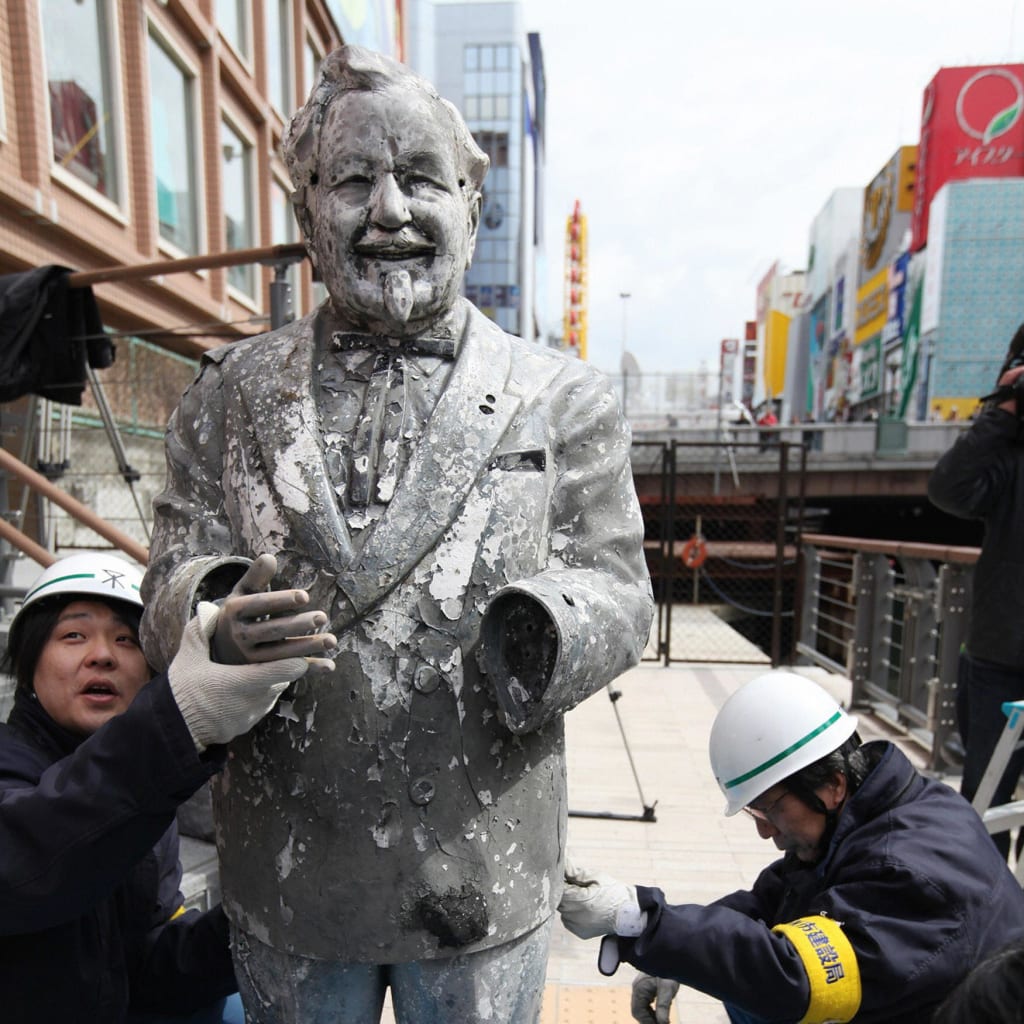
They finished in fourth place in '09, with the statue (the glasses and hand were eventually found) standing outside the ballpark.
Eventually, because it seemed like the statue was not bringing luck and only making things worse, the Colonel was moved back to the KFC office in Osaka and bolted down. The curse seemed to, even after the Colonel was pulled out, live on. Was the initial damage the fans did back in '85 too much? Would the Kentucky Fried Chicken ghost haunt them forever?
The Tigers didn't come in first for the next 13 years -- a travesty for one of the most popular teams in Japanese baseball.
"As far as passion goes, the Tigers fans are probably more knowledgeable than any other fanbase out there," Raichura said. "They're greater in number, they're probably greater in volume. As such, they're probably greater in their acts of hooliganism or fanaticism. They're a step above everyone."
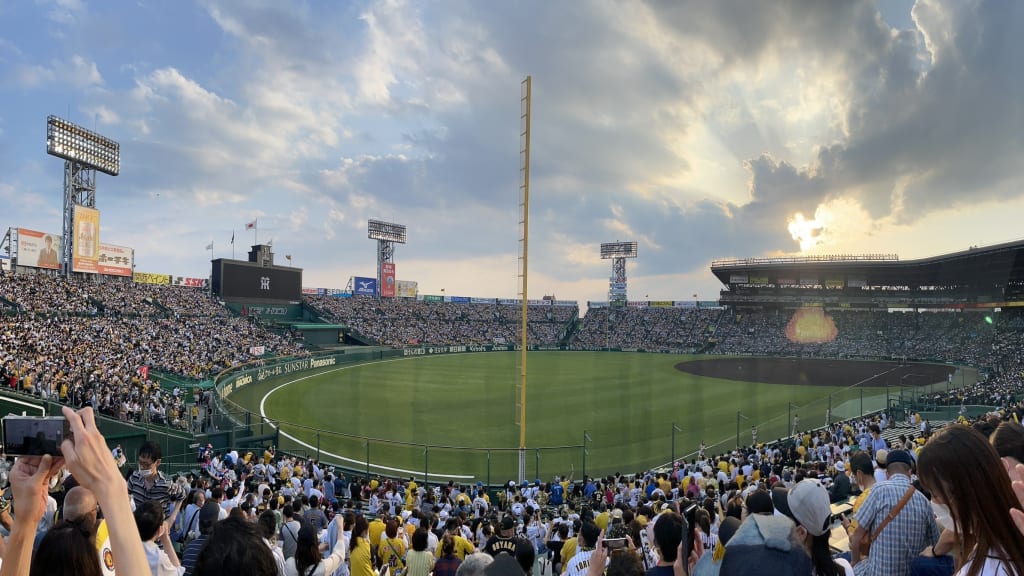
But this season, the Tigers took first place in the Central League. They won the pennant for the first time in 20 years.
Fans crowded around the river post-win, but the antics were much less than they'd been in prior decades. Only 26 people dove in -- maybe a bit wary of what they should do or not do so they don't somehow elongate the curse.
"Tigers fans were much more calm than we had expected," said Satoshi Oshimo, an Osaka prefecture police officer. "They used to be violent, like smashing up signboards. But there was nothing like that."
Unlike when the Red Sox or Cubs were in the Series after long droughts, Raichura says talk of the curse isn't too prevalent. It's not all-consuming like it would be in American sports. The media, the players, the fans, don't seem to talk too much about it. Maybe because, well, a Colonel Sanders curse is a ridiculous thing? Or maybe they're afraid mentioning anything about it may jinx them?
Still, it's not being completely ignored.
"Interestingly enough, the local KFC right next to the stadium, they have like a cardboard replica of the Colonel statue. The one that got pulled out of the river," Raichura said. "They have it on display in the store right now."
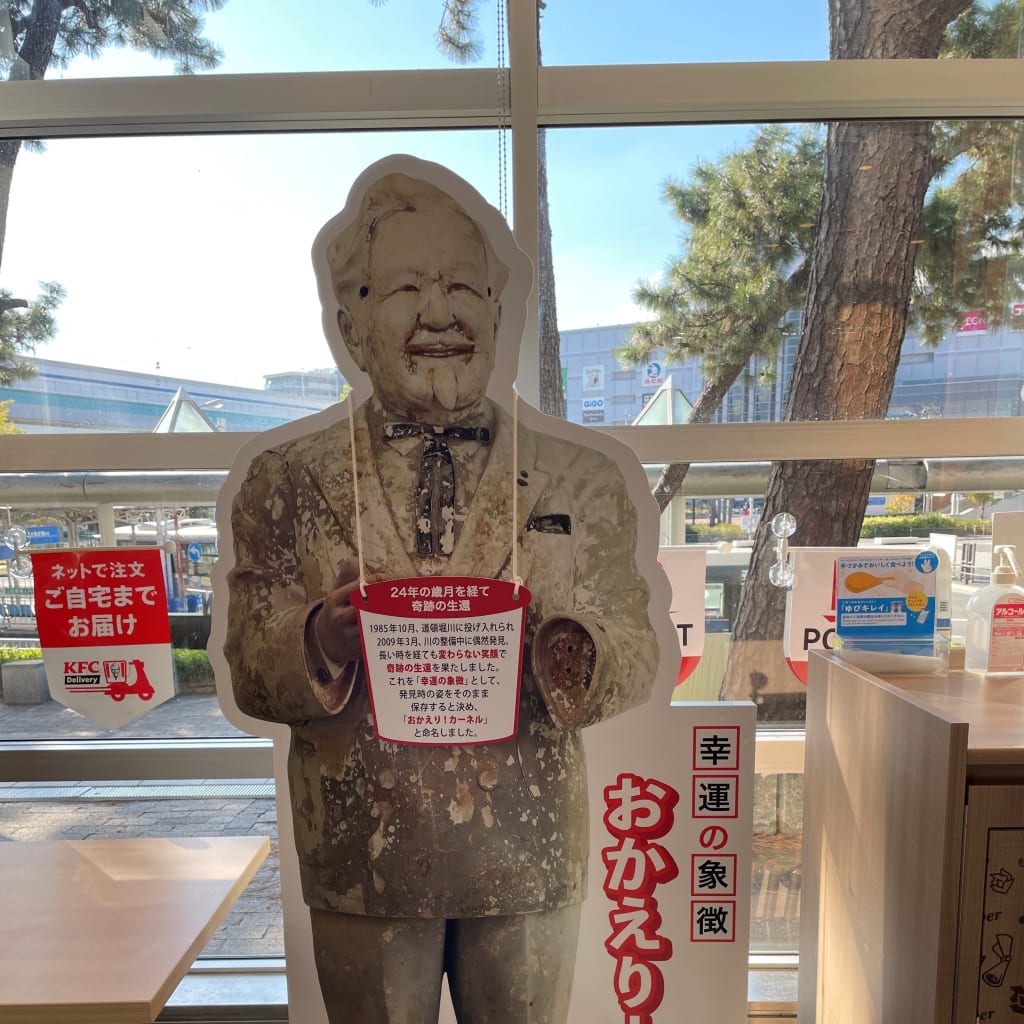
Even Raichura, who pretty much tried to prove why the curse was a hoax in his blog, seemed hesitant whether the Tigers would win -- sounding like a fan of a team that definitely might be cursed.
"I read that 75 percent of teams, in Japan, that are up 3 games to 2, end up winning the Series. The odds are in our favor, but one of those 25 percenters was the Tigers in 2003. They went on the road for Games 6 and 7 and got pasted."
The hesitancy was warranted on Saturday as the Tigers lost Game 6 against Buffaloes ace Yoshinobu Yamamoto.
But on Sunday, the Tigers triumphed, 7-1. The Japanese baseball world and, particularly, that old grey, weathered statue of Colonel Sanders, were surely watching.
